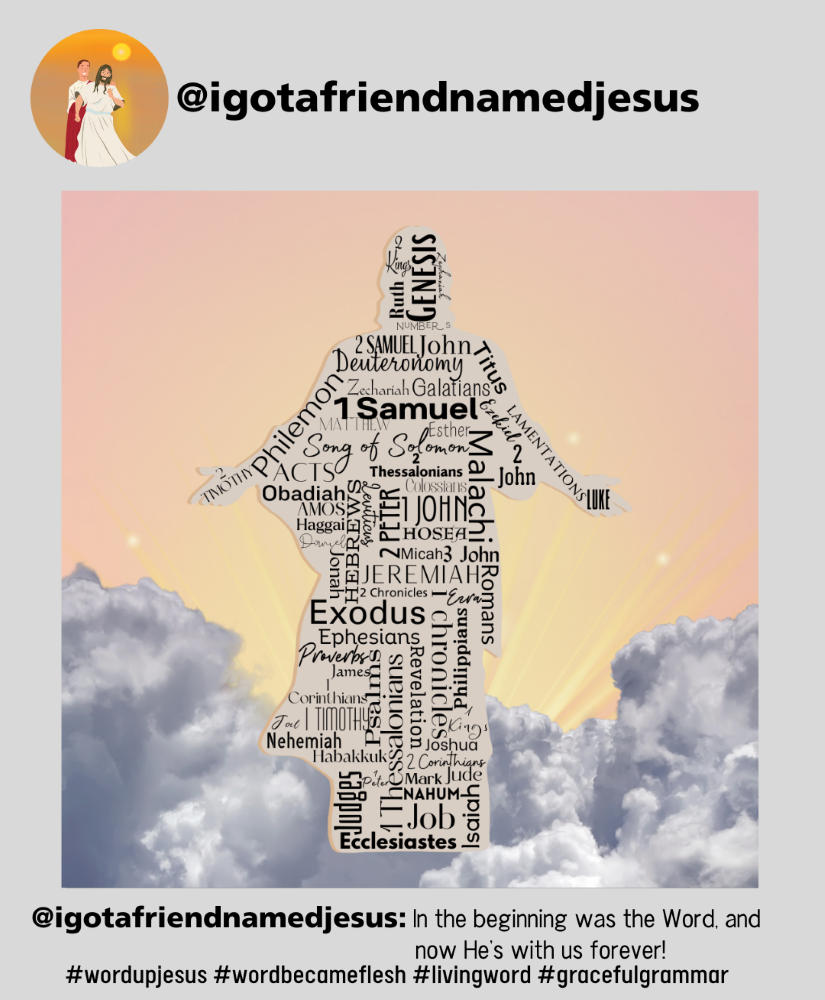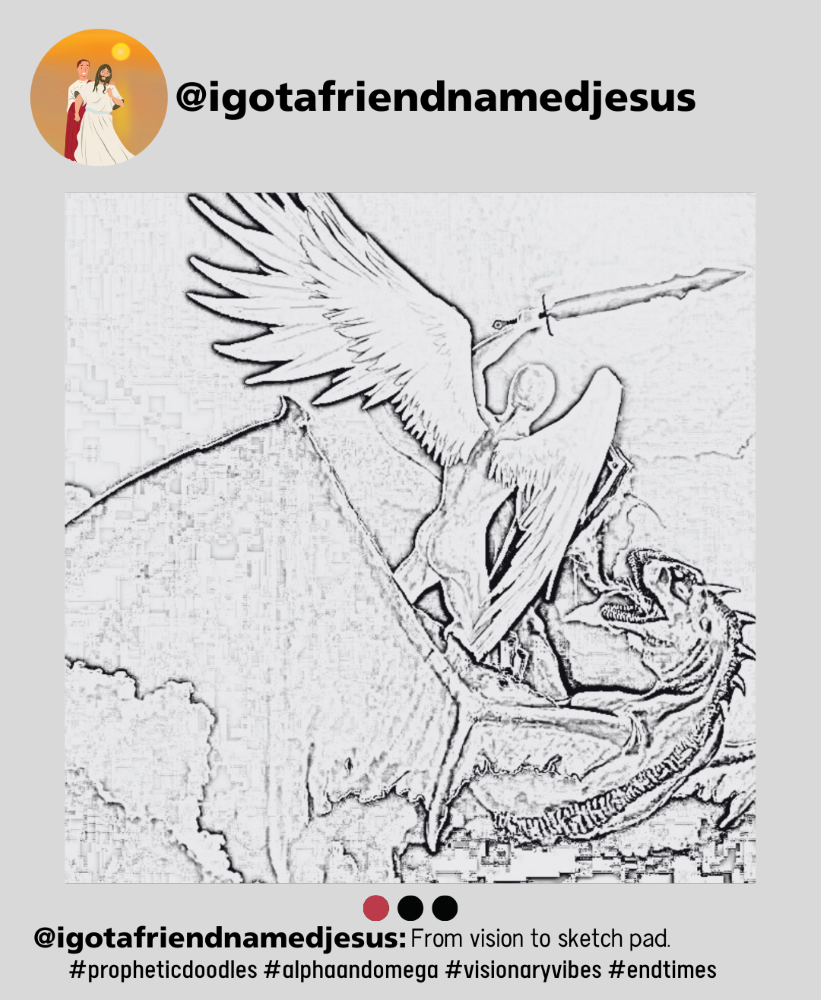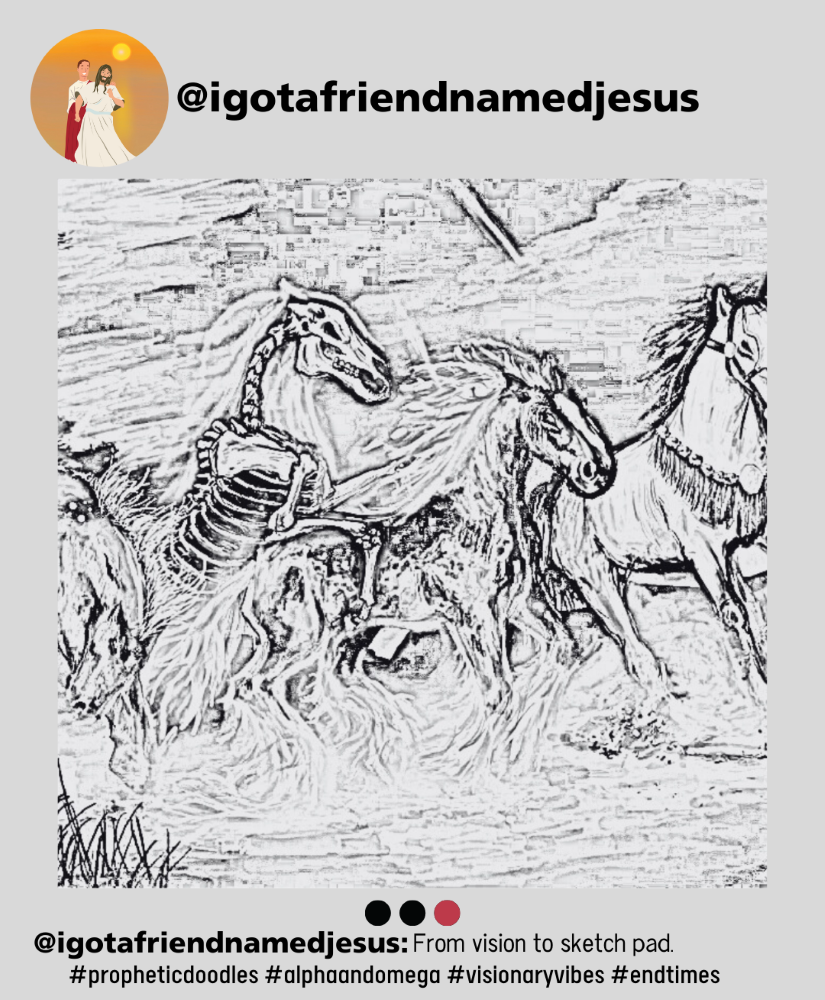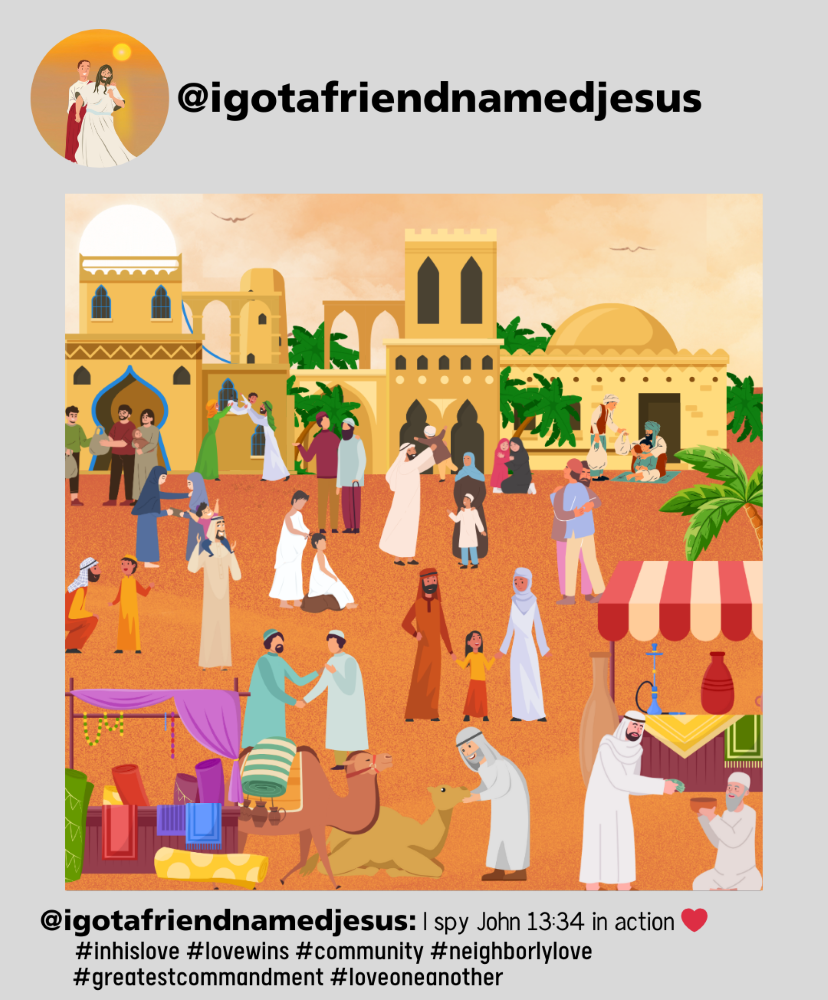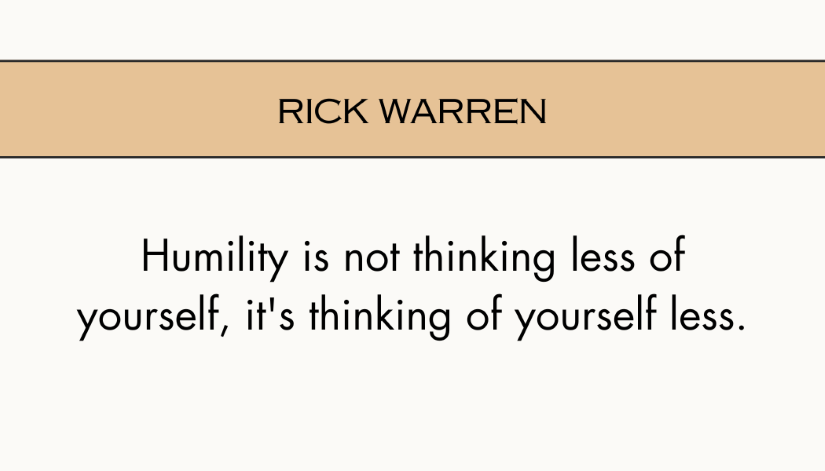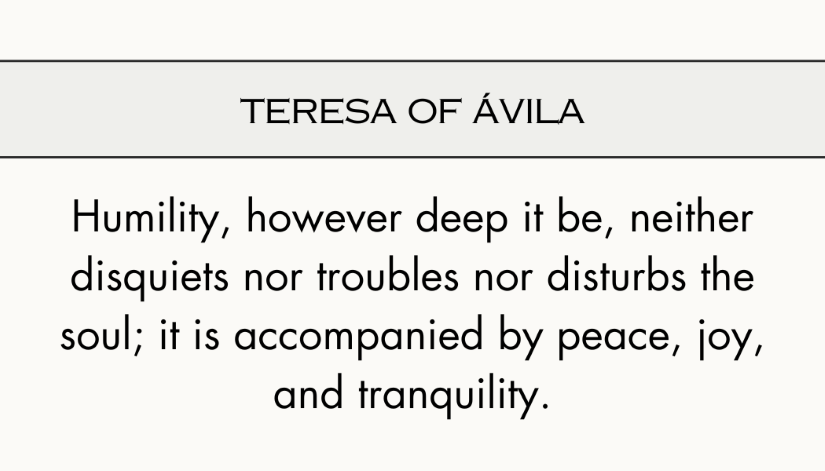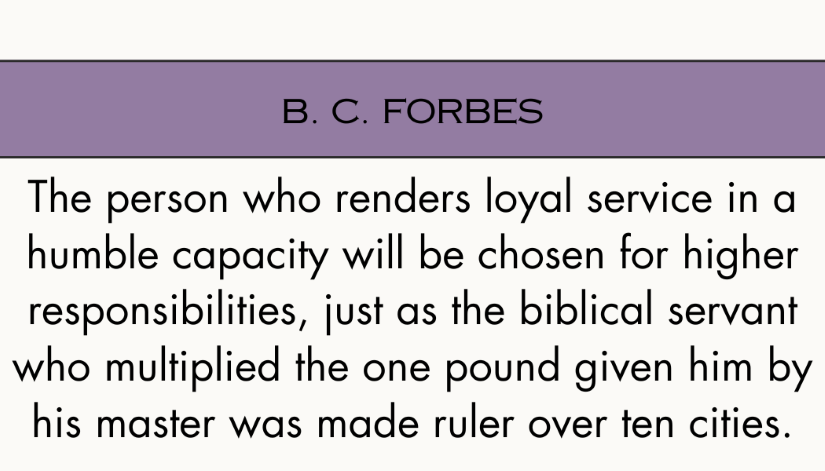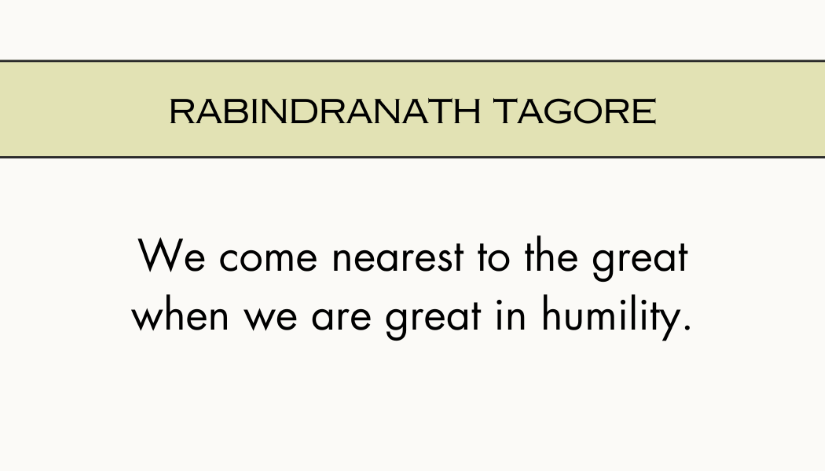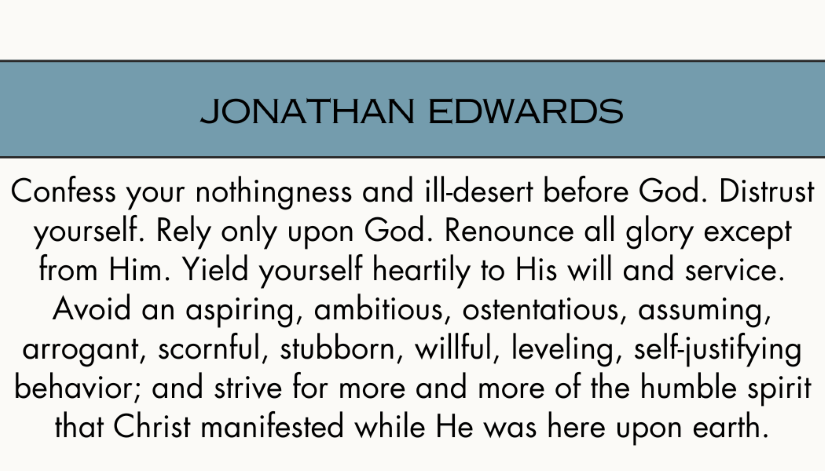Sacred Scams: Part One
Throughout time, religion has been a powerful force, inspiring countless acts of faith, devotion, and sometimes... a little mischief. Whether it be mysterious relics or outlandish claims of divine intervention, the line between belief and deception can sometimes be distorted. Today we will explore some of the most curious and perplexing religious hoaxes that intertwine truth and fiction.
Faith Meets Fraud
From fabricated relics to imaginative forgeries, the world of religious hoaxes is a curious blend of mystery, humor, and intrigue. Although religion and faith are inherently the search for truth, history shows that not everything is as it seems.
The Shroud of Turin
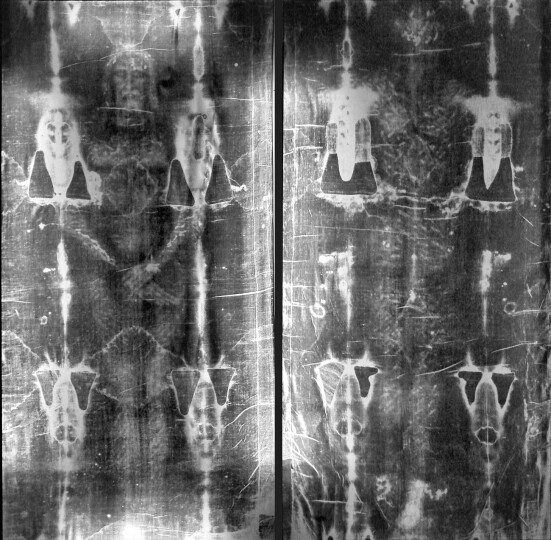
"Full-length negatives of the Shroud of Turin" by Giuseppe Enrie, 1931. Licensed under CC BY-SA 4.0. Available at Wikimedia Commons.
First documented in the 14th century, the Shroud of Turin is a 14-foot, centuries-old linen cloth that has sparked considerable debate among scientists, historians, and theologians alike. Bearing a faint image of a man who has experienced severe physical trauma consistent with the injuries described in Christ’s crucifixion, many believe the Shroud to be Christ’s burial cloth.
In the wake of the mystery surrounding the Shroud, it has been subject to extensive scientific analysis. Radiocarbon testing has determined that the Shroud likely dates back to 1260 through 1390 AD, proposing it is more reasonable to consider it a medieval forgery. However, these results have been challenged by some researchers who argue that the samples tested may have been contaminated or taken from a later repair patch.
Some researchers assert the image of the man was created by a process that is impossible to replicate by known medieval techniques, contributing to the Shroud’s allure. To date, no overarching consensus about the Shroud’s origin has been reached.
The Ossuary of James

"James Ossuary" by Hanay is licensed under CC BY-SA 3.0. Available at Wikimedia Commons.
Discovered in Israel in 2002, and thought to be the first archaeological evidence of Christ’s existence, the Ossuary of James is a simple limestone chest consistent with the typical Jewish burial practices in 1 AD. Used to store the bones of the deceased after decomposition, the Ossuary of James was inscribed with the Aramaic phrase: “Ya’akov bar Yosef achui d’Yeshua,” which translates to “James, son of Joseph, brother of Jesus.” If proven to be authentic, it would be tangible evidence of Christ’s brother James, thus establishing direct archaeological evidence of Christ and His family.
Upon several meticulous examinations that resulted in a seven-year trial, experts revealed that the Ossuary itself was an ancient artifact, yet found the inscription to have been added later. Despite the findings, the court determined there was insufficient evidence to prove beyond a reasonable doubt that the Ossuary’s current owner had faked the inscription, and the verdict did not conclusively state whether the inscription was authentic; leaving the issue unresolved and many that believe it to be authentic.
The Cardiff Giant
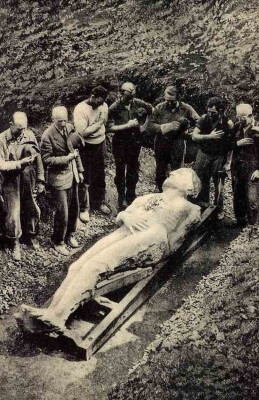
"Cardiff Giant" by Andrew Balet is licensed under CC BY-SA 4.0. Available at Wikimedia Commons.

"The Cardiff Giant" by Ryan Snyder is licensed under CC BY-SA 2.0. Available at Wikimedia Commons.
Possibly one of the most elaborate unofficial social experiments executed by a single person, the ‘discovery’ of the Cardiff Giant quickly captivated the public. Following an argument about the literal interpretation of the Bible, atheist George Hull paid special attention to Genesis 6:4 and hired stonecutters to carve a 10-foot-tall gypsum figure that was deliberately made to look weathered and ancient, complete with tool marks to simulate the appearance of an archaeological find. Once completed, the statue was secretly buried on his cousin's farm.
In October of 1869, a crew of hired workers unearthed the statue while digging a well on the farm. Presented as the fossilized remains of a prehistoric giant, it didn't take long for word of this impressive find to sweep the nation. As thousands of people traveled to Cardiff to witness the giant themselves, Hull’s cousin recognized the value of the giant and began to charge an admittance fee. Observers debated the validity of the statue's origin, with some holding onto the belief that it was a giant akin to those mentioned in the Bible, while others reasoned it was likely a statue crafted by ancient Native Americans.
Experts were divided on the giant’s legitimacy. Many geologists and archaeologists immediately identified the giant as a counterfeit and even pointed out the inconsistencies in the petrification process and the tool marks on the statue. Less certain, many theologians accepted the giant as confirmation of Biblical records. The deception lasted 2 months before Hull decidedly confessed.
In an ironic turn of events, a legal dispute erupted over the fraud and a replica of the fraud. The famous P.T. Barnum himself had offered to purchase the statue for $50,000! When his offer had been declined, he even created a plaster copy and showcased it as the ‘original’ Cardiff Giant. The authenticity over which of the two fakes went to court, however, the judge determined that because Hull’s giant was a fake, he had no right to claim exclusive rights to the fraud. Despite the sham, both Hull’s and Barnum’s giants continued to draw crowds.
The Donation of Constantine

"The Donation of Constantine, page 318" from the 9th-century manuscript Historia ecclesiastica by Eusebius of Caesarea is in the public domain. Available at Wikimedia Commons.
For centuries, the Donation of Constantine has been a forgery that has directly impacted the course of history. The Donation of Constantine claimed to be a decree from Constantine after his miraculous conversion to Christianity. It is reported that after Pope Sylvester I healed him of leprosy, Constantine allegedly showed his gratitude by granting the Pope dominion over Rome, Italy, and the entire Western Roman Empire. Beyond securing political power equivalent to those of royalty, the decree also declared the Pope to be the spiritual and temporal head of all Christianity, placing the papacy above all secular rulers in matters of both church and state.
Throughout the Middle Ages, the Roman Catholic Church utilized the Donation of Constantine to assert and maintain power across Europe. However, during the Renaissance, the legitimacy of the Donation of Constantine underwent significant scrutiny. An Italian scholar, Lorenzo Valla, challenged the document’s admissibility and conducted a detailed analysis of its language, historical context and accuracy, and its overall content. In 1440, Valla published his work that convincingly indicated that the Donation of Constantine was, in fact, a forgery.
Initially, the Roman Catholic Church was able to suppress Valla’s findings, but they gradually spread and gained acceptance among scholars and political leaders. The balance of power in Europe experienced a dramatic reform, and the criticism over the corruption strongly supported the Protestant Reformation.
The Priory of Sion
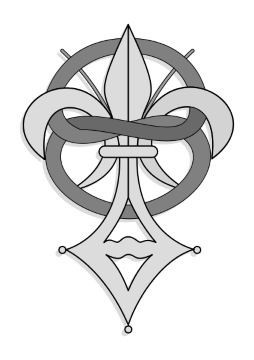
"Prieuré de Sion logo" by Pierre Plantard is in the public domain. Available at Wikimedia Commons.
During the 1960s, the revelation of a secret society founded in the 11th century, the Priory of Sion, quickly captured the imaginations of conspiracy theorists, historians, and the general public alike. The society’s ancient history declared it was established in 1099 by Godfrey of Bouillon, a leader of the First Crusade, and bore the responsibility of protecting the classified identities of Christ’s and Mary Magdalene’s living descendants.
Bolstering the validity of the society was a series of documents, known as the Dossiers Secrets, which was stored away in the Bibliothèque Nationale in Paris. The Dossiers Secrets disclosed a prestigious lineup of the society’s former leaders, including Leonardo da Vinci, Isaac Newton, and Victor Hugo.
In 1967, the publication of The Gold of Rennes (also known as The Accursed Treasure of Rennes-le-Château) by Gérard de Sède made a connection of the Priory of Sion to the mysterious village of Rennes-le-Château in France. However, the Priory of Sion eluded mainstream awareness until 1982 with the release of the book The Holy Blood and the Holy Grail by Michael Baigent, Richard Leigh, and Henry Lincoln. Marketed as non-fiction, the book was an international hit that suggested the society had been guarding Christ’s and Magdalene’s bloodlines and had been working behind the scenes to restore the descendants to power. Inspired by The Holy Blood and the Holy Grail, Dan Brown released his book, The Da Vinci Code in 2003, which indicates that the Catholic Church had suppressed the true story of Christ’s descendants and the Priory of Sion was at the center of the conspiracy.
Despite the society’s global popularity, the Priory of Sion was nothing more than a fabrication that had become sensationalized through a blending of historical facts, conspiracy theories, and religious mysteries. The origins of the society have been traced back to a man named Pierre Plantard. Plantard and his associates Philippe de Chérisey and Gérard de Sède, concocted an elaborate story about the Priory of Sion’s roots, wrote and submitted the Dossiers Secrets to the Bibliothèque Nationale, and watched as their story took on a life of its own.
The Jesus' Wife Papyrus

"Gospel of Jesus' Wife" by Karen L. King is licensed under CC BY 3.0. Available at Wikimedia Commons.
The Jesus' Wife Papyrus is a small fragment of an ancient papyrus scroll that was publicly revealed in 2012. With a mere 8 lines of text, written in an ancient Egyptian language, Coptic, a controversial debate about the details of Christ’s mortal life was birthed. The dispute centered around two provocative lines that read, "Jesus said to them, 'My wife...,'" and, "She will be able to be my disciple." The bold suggestion that Jesus may have had a wife harbored various implications.
Although speculation about the snippet being concrete evidence unfolded, from the onset it also faced considerable skepticism. Questions arose about the papyrus's provenance, as its owner remained anonymous, and there was no clear record of where or when it was discovered.
As debate over the fragment intensified, various scientific and linguistic tests were conducted to determine its authenticity. Initial testing signified the papyrus and ink were potentially ancient, lending some credence to the idea that the fragment could be genuine. But results were found inconclusive, and grammatical inconsistencies continued to weigh on experts.
A journalist named Ariel Sabar was determined to get to the bottom of the mystery. In 2016, Sabar published his work. Having tracked down the fragment's owner, the details of his work heavily alluded that it was likely a forgery. He discovered the owner, Walter Fritz, had a history of involvement with fraudulent activities, particularly within the realm of dubious antiquities.
Albeit the papyrus has not officially been proven to be bogus, the general consensus decisively perceives it to be fake.
The Letter of Lentulus
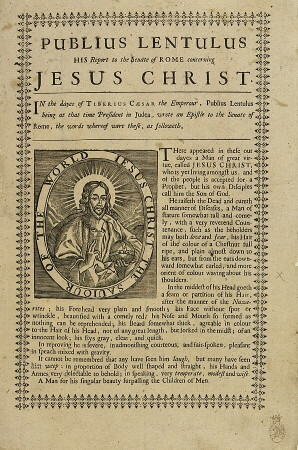
"Letter of Lentulus" is in the public domain. Available at Wikimedia Commons.
The Letter of Lentulus is a text that purports to describe the physical appearance of Christ. Supposedly written by a Roman official named Publius Lentulus, who was said to be a predecessor to Pontius Pilate, the letter provides a detailed and idealized portrait of Jesus, that emphasizes His divine nature and remarkable presence.
Using the 15th-century manuscript, Dr. Cora E. Lutz translated the letter into English as follows:
"Lentulus, to the Senate and the Roman People, greetings.
There has appeared in these times, and, indeed, is still living, a man of great power named Christ Jesus, who is said by the Gentiles to be the prophet of truth, but his disciples call him the Son of God. He raises the dead and heals all diseases. He is a man of average size and pleasing appearance, having a countenance that commands respect, which those who behold may love or fear. He has hair the color of an unripe hazelnut, smooth almost to the ears, but below his ears curling and rather darker and more shining, hanging over his shoulders, and having a parting in the middle of his head according to the fashion of the Nazarenes. His brow is smooth and quite serene; his face is without wrinkle or blemish, and a slight ruddiness makes it handsome. No fault can be found with his nose and mouth; he has a full beard of the color of his hair, not long but divided in two at the chin. His facial expression is guileless and mature; his eyes are greyish and clear. In his rebukes he is terrible, but in his admonitions he is gentle and kind; he is cheerful, but always maintains his dignity. At times he has wept, but he has never laughed. In stature he is tall and erect and his hands and arms are fine to behold. His speech is grave, reserved, and temperate, so that he is rightly called by the prophet, "Fairer than the sons of men." "(Psalm 45:2).” Cora Lutz. " The Letter of Lentulus Describing Christ." The Yale University Gazette. Vol. 50, Issue 2, 1975. pp. 91-97.
Beyond describing Christ’s physical appearance, the letter was used to aid the credibility of Christ’s existence and His divinity. It also influenced Medieval and Renaissance art as depictions of Christ began to feature the physical characteristics described in the letter.
However, based on the letters first documentation being centuries after Biblical times, the inability to find evidence that confirms the existence of Publius Lentulus or any known historical Roman roles fitting his described position, the use of language and style of the writing aligning closer to the literary conventions of medieval Christian texts, and the absence of a physical description among the earliest Christian texts, experts debunk the letter, concluding it is nothing more than a forgery.
Final Thoughts
Captivating believers and skeptics alike, these hoaxes prove that sometimes the truth really is stranger than fiction. Whether crafted with good intentions, for profit, or just as a playful prank, these stories remind us that it’s important to keep a discerning eye.
-Torrance Community Church of Christ






